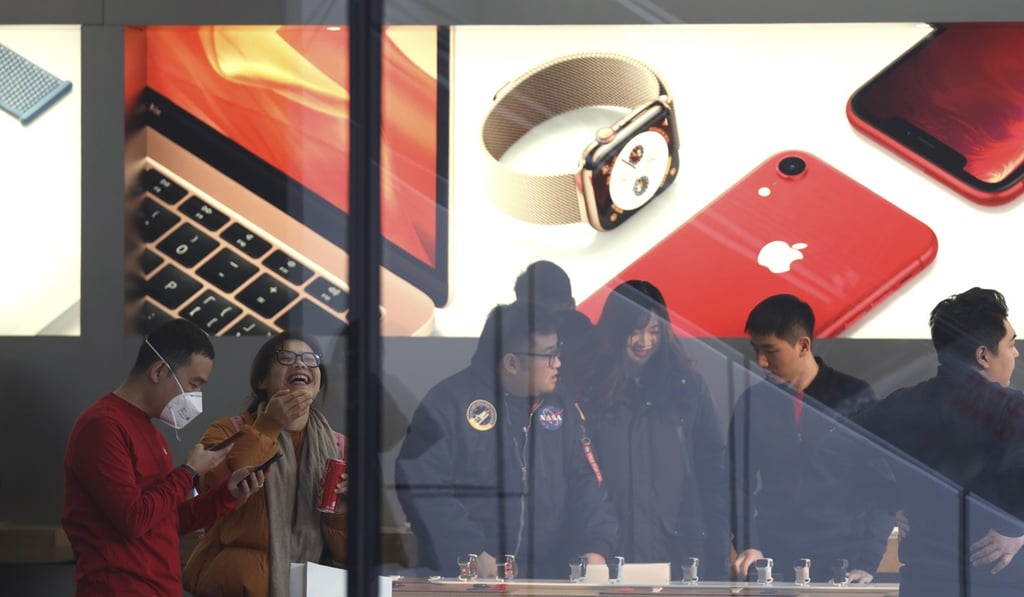Inside Apple’s high-stakes diplomacy in the US-China trade war
- Cook has made a point of directly engaging with Trump, even as the president’s immigration policies have scared off other executives from Silicon Valley
- Apple counts about 10,000 employees in China and is responsible for more than 3 million jobs there through its supply chains

This story is published in a content partnership with POLITICO. It was originally reported by Steven Overly, Margaret Harding McGill and Celia Chen on politico.com on March 3, 2019.
President Donald Trump’s trade war with China has left a trail of economic wreckage across American industries from soybean farms to auto manufacturers. But as the Trump administration sends signals about a potential trade deal with Beijing, one iconic American company is poised to emerge from the bruising conflict in a better position than most: Apple.
Under chief executive Tim Cook, Apple has kept its China-manufactured iPhones off the list of Chinese imports that Trump has slapped with roughly US$250 billion in tariffs. That puts the Cupertino, California-based electronics giant in an enviable position compared with other sectors caught in the crossfire – thanks in part to efforts by the soft-spoken, 58-year-old Cook to cultivate leaders in both countries.
In the US, Cook has made a point of directly engaging with Trump, even as the president’s immigration policies and remarks about minorities have scared off other executives from liberal-leaning Silicon Valley. And in China, Cook – who knows some Mandarin – has actively cultivated government and business leaders during his frequent visits to a country where Apple’s supply chain supports an estimated 3 million jobs.
“Among the tech titans, he’s probably the one who is best placed to deal with both sides at the same time,” said James Lewis, a former State and Commerce department official who dealt with China trade issues and now directs the technology policy programme at the Centre for Strategic and International Studies. Apple, he said, is respected in the US as one of the country’ most valuable companies, and is viewed in China as being more “impartial” and “independent” than other American firms.
Cook’s finesse in navigating the divide was tested as never before in January when Apple lowered its quarterly revenue projections, in part due to the softening of the Chinese economy after Trump levied his sanctions. Cook told investors at the time that “macroeconomic factors will come and go” but said he manages Apple for the long term. The company’s stock price took a hit, but promptly rebounded.
